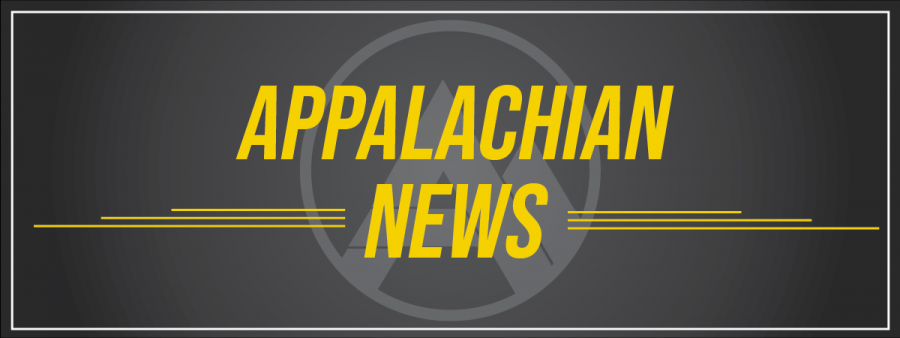App State was named a 2023-24 Military Friendly School for the 14th year in a row, ranking No. 9 out of over 1,800 participating universities. It is the only large public university ranked in the top 15.
During those years, App State has worked to create a welcoming and accommodating academic community for student veterans. According to the university, App State enrolled over 1,000 military-affiliated students in the fall 2022 semester, consisting of veterans, active-duty service members and military dependents.
According to the Student Veteran Services website, App State is “more dedicated than ever to helping military-affiliated students thrive on campus and in the community.”
University bodies such as the Military Affairs Committee and Student Veteran Services work directly with military-affiliated students to implement policies which uplift them during their academic careers.
In 2010, the UNC system launched the UNC SERVES initiative after adopting research on how well UNC schools serviced veterans and other military-affiliated. Part of the initiative required every UNC campus to create a Military Affairs Committee that works to improve conditions for military students.
Lynn Gibbard, professor of communication and former chair of the MAC, was approached by App State administration in 2012 and asked to help form the committee.
Gibbard said a key component of forming a functioning committee is taking an enrollment management approach, meaning the people serving military students are at the table actively discussing initiatives and recommendations to administrators.
“It included everyone from the chancellor’s office to financial aid, faculty, staff, orientation, you name it,” Gibbard said. “Higher education has historically not been very supportive of veterans, and people here really wanted to change that.”
Gibbard said a major accomplishment of the committee was the institution of Green Zone Training, an instructional workshop available to faculty and students. The course informs trainees of practices and structures that best accommodate military students in their transition to academic life.
“That helps the community understand the benefits of having military-affiliated people on campus,” Gibbard said. “One of the big parts of that training is intercultural communication and how we communicate differently and how we can bridge that gap.”
Other accomplishments of the MAC include policies if an active-duty military student is deployed and early-access class registration for military-affiliated students.
Gibbard said a major goal of the committee was to eventually create an on-campus space for student veterans to find community amongst each other since at the time none existed.
“Student veterans are a special population and they bring wonderful things to the campus in terms of their diversity, background and experience, their leadership skills, but also need some extra support,” Gibbard said. “We knew they needed a center; a place they could go to have collegiality amongst each other.”
In 2015, App State was awarded a grant for $273,922 from the Department of Education to allow faculty to continue improving support for student veterans. Gibbard, who wrote the grant proposal, said the funds allowed for the opening of the Student Veteran Resource Center, currently located in room 251 of Plemmons Student Union.
The center became the area where students with shared life experience in the military could find their community. The center works in tandem with the Student Veteran Association, a club consisting of student veterans that routinely holds events to foster camaraderie, such as weekly trivia, tailgates and barbecues.
“I feel like I’m a part of a little community,” said Karianne Castillo, a senior biology major and vice president of the SVA. “It’s my comfort spot on campus. We’re like a big family.”
Castillo, who has been in the Army Reserves for almost four years, said the club works to ease the transition from active duty service to being a full time student and help veterans become more comfortable in academic environments.
Sophomore nursing major Kevin Lenh joined the Army in July 2017 after graduating high school in Minneapolis.
“I had that decision from when I was about 13 years old,” Lenh said.
He enlisted as an infantryman and was stationed in Fort Liberty near Fayetteville, North Carolina. After two years of training, Lenh was deployed to Afghanistan from July 2019 through March 2020.
“It was very much a culture shock,” Lenh said. “It’s very much different than it is here.”
After being honorably discharged in 2021, Lenh spent two years in Raleigh attending community college until this summer when he began considering attending a four-year university. Lenh said he considered other North Carolina schools, but saw how well App State treated their veterans and decided to enroll.
“I think it’s the connections, the amount of stuff going on here. There’s a lot of opportunities to get involved,” Lenh said.
Caitlin Langley, senior sustainable development major and president of the SVA, joined the Army Reserves after graduating high school and also enrolled at App State.
Only two months after she arrived on campus, Langley was deployed to Guatemala for a service project building a school and small hospital. She returned from Guatemala and attended classes on-campus for a semester, then was deployed again to Somalia for over a year.
Langley returned to campus for the fall 2021 semester and completely immersed herself into the App State military community, working as secretary of the club before being nominated as president.
She was also formally invited to serve as a student representative on the MAC.
Langley said she wants the culture of the association to be as accessible and inclusive for military students of all backgrounds. In May 2023, Langley received the Inclusive Excellence for Students Award for her commitment to advancing diversity and inclusion throughout the military student community.
“I’d hate to know that there’s a student veteran out there that could benefit from the association or the center and they don’t engage because they don’t appreciate the environment or feel nervous,” Langley said.
Langley and Gibbard both said a common challenge for student veterans is the stark cultural transition from the rigid structures found in the military to the vast cultures and personalities found in a university setting.
“If you’re used to being around people who are being told what to do, time is very scheduled out and you have to have a certain chain of command to go through, then sometimes going into a classroom can be difficult,” Gibbard said. “You’re being told to make decisions on your own, being asked to question authority and seeing others even be disrespectful to staff or administrators, and those are just things you do not do.”
Librarian liaison to student veterans Emma Sobczak Schell said she always accounts for specific challenges military students face during her work.
“Whenever I work with student veterans I keep in mind they have a wealth of experience coming to the table, and they have a lot of obligations,” Sobczak Schell said. “They may have spouses at home, they may have children depending on them. It’s commitments beyond the classroom you need to consider.”


